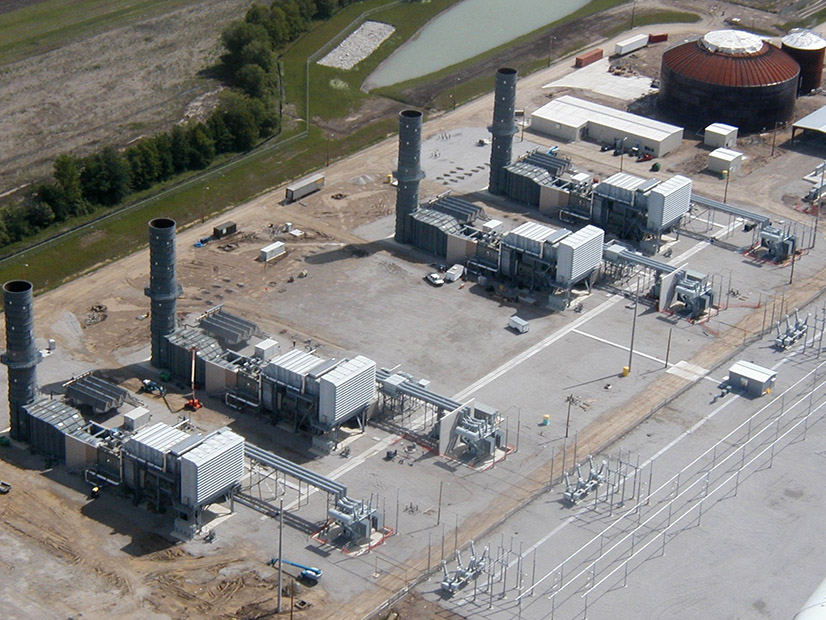
FERC on Monday approved an agreement between Dynegy and its Office of Enforcement that will have the company pay more than $569,000 to settle allegations that it violated the PJM tariff by misrepresenting the ramping levels of 10 of its combined cycle combustion turbines in 2017 (IN22-3).
Enforcement found that the units’ real-time energy market offers misrepresented that they could “ramp to their maximum oil-based output attained during their summer capacity tests (ICAP) while running on gas.” The office also alleged that Dynegy failed to comply with the requirement that each unit be able to “change output at the ramping rate specified in the offer data.”
Dynegy stipulated to the facts in the agreement but neither admitted nor denied the alleged violations. The company agreed to pay disgorgement plus interest, totaling $119,425 and a civil penalty of $450,000 to the U.S. Treasury and to submit two annual compliance monitoring reports identifying “any known violations” regarding the PJM units identified in the investigation.
“The PJM market and its market participants bore the cost of Dynegy’s violation,” FERC said. “The commission directs PJM to use its best efforts to allocate the disgorgement funds on a pro rata basis to affected market participants.”
Background
The commission said the 10 units identified in the investigation were split among three facilities in PJM: Pleasants Power Station in West Virginia; Armstrong Power Station in Pennsylvania; and Troy Energy Facility in Ohio.
FERC said during PJM’s capacity auctions for the 2016/17 and 2017/18 delivery years, the previous owner of the units offered and cleared capacity “at a level that would require the units to run on oil” to meet their ICAP during a capacity test, with Dynegy inheriting an “oil-based” ICAP for each unit for both delivery years when they were acquired.
“However, these units were unlikely to be able to reach their oil-based ICAP when the units were already running on gas on summer days in 2017 consistent with the ramp rate that Dynegy entered for these units’ real-time offers,” FERC said.
In the summer of 2017, Dynegy’s real-time offers represented that the units could attain oil-based ICAP “in less than a minute if dispatched from a unit’s maximum output on gas that day to the higher oil-based ICAP.”
FERC said for the units to achieve maximum output after starting on gas in the summer months, they would “likely have to switch to oil” by ramping down to about 20 MW and then ramping back up after the fuel changeover was completed. The process would take about 28 minutes to go from the unit’s daily maximum output on gas to the oil-based ICAP.
The investigation found the real-time offers “misrepresented the ramping rate for the segment of the real-time offer curve that could only be reached on oil” and that Dynegy submitted “false or misleading information” to PJM that the units could ramp upward to the oil-based ICAP in one minute.
Dynegy calculated each combined cycle’s maximum generation using a formula incorporating the next day’s forecasted ambient conditions under both gas and oil, the commission said, and the calculations were used to determine the unit’s day-ahead and real-time offer curves and economic maximum for the day.
“In the summer months of 2017, the oil-based ICAPs were generally too far above the daily predicted gas max for Dynegy to reasonably expect that the units could reach their oil-based ICAP on gas alone,” FERC said.
Dynegy sold the Troy and Armstrong facilities in July 2017 to LS Power. Vistra (NYSE:VST) acquired Dynegy, including the Pleasants units, in April 2018.
